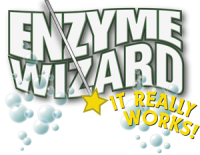Do Enzyme Drain Cleaners Really Work?

Enzyme Drain Cleaners has become a popular alternative to traditional chemical cleaners due to their perceived safety and eco-friendliness.
However, many people wonder if they are as effective as their chemical counterparts.
The answer is not straightforward, as the effectiveness of enzyme drain cleaners depends on several factors.
Enzyme drain cleaners work by using enzymes to break down organic matter such as hair, grease, and food particles that clog drains.
They are typically slower acting than chemical cleaners and may require multiple applications.
The effectiveness of enzyme drain cleaners can also be affected by factors such as water temperature, pH levels, and the type and amount of organic matter present in the drain.
While enzyme drain cleaners may not work as quickly as chemical cleaners, they are generally considered safer for use in homes with children and pets.
Especially our product!
Understanding Enzyme Drain Cleaners
Enzyme drain cleaners are a popular alternative to chemical drain cleaners. They use natural enzymes to break down organic materials, such as hair and food particles, that clog drains.
Enzymes are proteins that act as catalysts to speed up chemical reactions.
They work by breaking down complex molecules into simpler ones.
Enzyme drain cleaners are safe for plumbing and the environment. They do not contain harsh chemicals that can damage pipes or harm the ecosystem.
They are also safe for septic systems and can help maintain the natural balance of bacteria in the tank.
Enzyme drain cleaners come in different forms, such as powders, gels, and liquids. They are easy to use and do not require any special equipment.
Simply pour the recommended amount of product down the drain and let it sit for a specified amount of time. Then, flush the drain with hot water to clear away any remaining debris.
It is important to note that enzyme drain cleaners may not work for all types of clogs.
They are most effective for organic clogs, such as hair and food particles. They may not be effective for mineral buildup or tree roots that have grown into the pipes.
In these cases, it may be necessary to use a mechanical snake or call a professional plumber.
Overall, enzyme drain cleaners are a safe and effective option for maintaining clean and clear drains.
They are non-toxic and environmentally friendly, making them a great choice for households with children and pets.
How Enzyme Drain Cleaners Work

Enzyme drain cleaners work by using natural enzymes to break down organic matter that clogs drains.
These enzymes are proteins that act as catalysts, speeding up chemical reactions without being used up themselves.
When poured down a drain, enzyme drain cleaners target and break down organic materials such as grease, oil, and food waste.
Enzyme drain cleaners are particularly effective at breaking down proteins, which are commonly found in food waste and hair.
They work by breaking the chemical bonds that hold these materials together, effectively liquefying them and allowing them to be flushed away.
One advantage of enzyme drain cleaners is that they are safe for use in septic systems, as they do not contain harsh chemicals that can harm the system’s natural bacteria.
Additionally, enzyme drain cleaners are generally safer for the user and the environment, as they do not produce harmful fumes or leave behind toxic residues.
It is important to note, however, that enzyme drain cleaners may not be effective on all types of clogs.
They may not work as well on inorganic materials such as plastic or metal, which can require a more powerful chemical drain cleaner or mechanical means of removal.
Overall, enzyme drain cleaners can be a safe and effective option for addressing organic clogs in drains.
They work by using natural enzymes to break down materials, making them a more eco-friendly choice than traditional chemical drain cleaners.
Effectiveness of Enzyme Drain Cleaners
Enzyme drain cleaners are becoming increasingly popular among homeowners as a safer and more environmentally friendly alternative to chemical drain cleaners.
But do they actually work? In this section, we will explore the effectiveness of enzyme drain cleaners.
Scientific Evidence
Enzyme drain cleaners work by using natural enzymes to break down organic materials that clog drains, such as hair, grease, and food particles.
The enzymes in these cleaners are typically derived from bacteria and are designed to be effective at breaking down specific types of organic matter.
While there is some evidence to suggest that enzyme drain cleaners can be effective at removing clogs, the scientific research on their effectiveness is limited.
One study published in the Journal of Microbiology and Biotechnology found that an enzyme-based drain cleaner was effective at removing clogs caused by hair and soap scum.
However, the study was conducted in a laboratory setting and did not test the cleaner on real-world clogs.
Another study published in the Journal of Environmental Science and Health found that an enzyme-based drain cleaner was effective at removing clogs caused by grease and oil.
However, the study did not compare the effectiveness of the enzyme cleaner to that of a chemical drain cleaner.
Overall, while there is some scientific evidence to suggest that enzyme drain cleaners can be effective at removing clogs, more research is needed to fully understand their effectiveness compared to chemical drain cleaners.
Additionally, it is important to note that enzyme drain cleaners may not be effective at removing all types of clogs and may take longer to work than chemical drain cleaners.
Comparing Enzyme and Chemical Drain Cleaners
Enzyme-based drain cleaners are becoming increasingly popular due to their eco-friendly nature and ability to break down organic matter without causing harm to pipes.
Chemical drain cleaners, on the other hand, use harsh chemicals to dissolve blockages and can potentially damage pipes if not used correctly.
Enzyme-based drain cleaners work by using natural enzymes to break down organic matter such as hair, grease, and food particles.
These enzymes are safe to use and do not emit harmful fumes, making them an excellent option for households with children or pets.
Additionally, enzyme-based drain cleaners are biodegradable, making them an environmentally friendly option.
Chemical drain cleaners, on the other hand, use potent chemicals such as sulfuric acid or sodium hydroxide to dissolve blockages.
These chemicals can be harmful if not used correctly and can cause damage to pipes if left in contact for too long.
Chemical drain cleaners can also emit harmful fumes and are not environmentally friendly.
When comparing enzyme and chemical drain cleaners, it is essential to consider their effectiveness.
Enzyme-based drain cleaners can take longer to work than chemical drain cleaners, but they are generally more effective at breaking down organic matter.
Chemical drain cleaners are faster acting, but they may not be as effective at removing stubborn blockages.
Another factor to consider is cost. Enzyme-based drain cleaners can be more expensive than chemical drain cleaners, but they are often more cost-effective in the long run due to their effectiveness and eco-friendliness.
Chemical drain cleaners may seem cheaper initially, but they can cause damage to pipes and require more frequent use, leading to higher costs over time.
In summary, enzyme-based drain cleaners are a safe, eco-friendly, and effective option for removing blockages in drains. Chemical drain cleaners may be faster acting, but they can cause harm to pipes and emit harmful fumes.
When considering drain cleaners, it is essential to weigh the pros and cons of each option and choose the one that best suits your needs.
Conclusion
In conclusion, enzyme drain cleaners are a potential solution to clogged drains caused by organic matter.
The use of enzymes to break down organic matter is a natural and environmentally friendly alternative to harsh chemicals.
While enzyme drain cleaners are effective in many cases, it is important to note that they may not work equally well on all types of clogs.
In some instances, mechanical methods such as snaking or plunging may be necessary to completely clear the drain.
It is also important to follow the instructions carefully when using enzyme drain cleaners.
Overuse or misuse of the product can lead to further damage to the plumbing system or even injury to the user.
Overall, enzyme drain cleaners are a promising option for those seeking a more natural solution to clogged drains.
However, it is important to consider the specific circumstances of each case and use the product appropriately.
To learn more about our product click here.
Frequently Asked Questions
Can enzyme drain cleaners effectively dissolve hair buildup in pipes?
Enzyme drain cleaners are effective in breaking down organic matter, including hair, in drains. However, they may not be as effective as chemical drain cleaners in removing large amounts of hair buildup. It is recommended to use enzyme drain cleaners regularly to prevent hair buildup in pipes.
Are bacterial drain cleaners more effective than enzyme cleaners?
Bacterial drain cleaners contain live bacteria that feed on organic matter in drains, while enzyme drain cleaners contain specific enzymes that break down organic matter. Both types of cleaners are effective in maintaining clean drains, but bacterial drain cleaners may be more effective in removing tough clogs. However, bacterial drain cleaners may not be as safe for pipes as enzyme drain cleaners.
What is the best way to use enzyme drain cleaner in a toilet?
To use enzyme drain cleaner in a toilet, pour the recommended amount of cleaner into the toilet bowl and let it sit for the recommended time. Then, flush the toilet to rinse the cleaner down the drain. It is important to follow the manufacturer’s instructions and not to use too much cleaner, as it may cause a backup in the toilet.
How often should enzyme drain cleaners be used to maintain clean drains?
Enzyme drain cleaners can be used regularly to maintain clean drains. It is recommended to use them once a month to prevent buildup and clogs in drains. However, if there is already a clog in the drain, it may be necessary to use the cleaner more frequently until the clog is removed.
Are enzyme drain cleaners safe for septic systems?
Enzyme drain cleaners are safe for septic systems as they break down organic matter without harming the bacteria in the septic tank. However, it is important to use only septic-safe cleaners and to follow the manufacturer’s instructions to avoid damaging the septic system.

